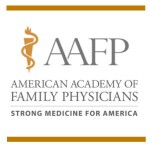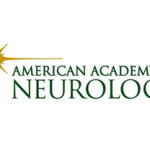In "Better: A Surgeon's Notes on Performance", Dr. Atul Gawande (General Surgeon, Brigham and Women's Hospital, Boston) attempts to provide the reader with a bird's eye view of what it takes to be better. He uses a vast array of interviews and historical perspectives to highlight what he believes are the pillars of become better in everything we do. Of course, the stories and perspectives revolve around medicine and hospitals, but you will be surprised to learn how diverse the various examples are in pinpointing what it means to become better. He uses examples of hospital teams improving the survival of patients with a certain disease, the historical accounts of improving health care through hand washing, an inspiring story of an attempt to eradicate Polio in India, and even a riveting tale of a physician-turned-malpractice lawyer who abandoned the stethoscope for law school. Though eclectic in their descriptions, each aims to hone in on the skills one needs to improve.
I think the goal of "Better" is noble. I also think the core content is interesting and through provoking. I even agree that physicians and medicine should be the ones to be pushing this envelope, trying every day to be better and to improve. It seems like this should be our job in society, if nothing else. And for this, I applaude Dr. Gawande and the goal of this book. However, I must admit that the product did not quite meet the goal of this book.
I have hesitated to write this review, because I know that so many other people, including many other docs, loved "Better". But, I must be honest and admit that this is not one of Gawande's better books. Perhaps I have held him up to an unhealthy standard after "Being Mortal", the book that got me started on Dr. Gawande, and one I think is a must-read for everyone, not just those in medicine. The problem with "Better" is that in the midst of all of its fascinating mini-stories (a hallmark of Dr. Gawande's writing) the actual goal of the book is lost on the reader. He can't quite pull all of the information together to drive home his ideas. It is almost as if he has not quite formalized the ideas of how to become better in his own head. For this I do not fault him. Certainly, he has come much closer to organizing the idea of improvement much better than I, or most other people can. But, unfortunately, mini-stories in this book are sporadic and, in the end, the sum of the parts of "Better" probably equals more than the whole.
Conclusion: "Better" by Dr. Atul Gawande is a good read, but not a must read. I give it a ShortWhiteCoat Step 1 score of 225.









 My name is Andrew and I am a first year resident training to be an ophthalmologist. I created ShortWhiteCoats to provide medical students, residents, and the public with all the information I spent so many hours looking for during medical school.
My name is Andrew and I am a first year resident training to be an ophthalmologist. I created ShortWhiteCoats to provide medical students, residents, and the public with all the information I spent so many hours looking for during medical school.







